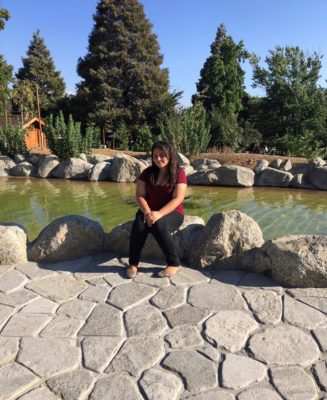One in five students age 12-18 in the U.S. have experienced bullying, according to the National Center for Education Statistics and Bureau of Justice. More than 70% of young people say they have seen bullying in their schools. Kids and teens who are bullied can experience physical and mental health issues, and problems at school.
CHOC Children’s teen advisers share their own experiences observing and dealing with bullying, and what they do to cope. CHOC experts also weigh in on what parents can do to support a child who is being bullied.
Talk openly about bullying
One of the best ways to protect your child from bullying is to talk openly about it, says Dr. Heather Huszti, CHOC’s chief psychologist.

“Have a discussion about why some kids might be bullies. You can explain that most bullies have low self-esteem and that they bully other people to try to feel better about themselves,” she says.
CHOC teen adviser Heather Bisset, age 14, has seen this play out firsthand.
“When someone bullies another person, it is often because they are insecure and do not know how to emotionally handle it,” she says. “A bully does and says things to make others feel hurt or down, and if you do not show a response, they will most likely leave you alone.”

Dr. Huszti also recommends parents ask open-ended questions of their children such as, “Is there anything going on at school?” or “Is there anything I can help you with?”
She adds that this approach usually works better than firing off a list of specific questions and can facilitate a bond between parent and child that will encourage them to open up to you when something is affecting them.
Find a trusted adult to talk to
CHOC teen adviser Zoe Borchard, age 15, knows the benefits of having someone to talk to when you have been bullied.
“At a high school football game, a girl that I don’t even know called me stupid along with a bunch of other nasty words behind my back. When I heard what she had said, I thought it wouldn’t affect me at first, but it started to eat away at me. I walked away to a quieter area during halftime and called my mom. I told her what happened, and it made things a million times easier to process and even let go,” she recalls. “To this day, I’ll call my mom every time I need help. If you can find someone you trust to share your problems with, it lightens your emotional load and gives you room to breathe and feel better.”

Teens can look beyond their parents in finding someone to talk to.
“The best advice I could give someone who is being bullied is to talk to an adult you trust and know is willing to help you,” says CHOC teen adviser Carina Alvaro, age 16. “This could be a teacher who has openly expressed willingness to help, or another trusted adult who can help you resolve these problems.”

Teens and cyberbullying
Nearly 15% of high school students have experienced cyberbullying, according to the Centers for Disease Control. Cyberbullying can include text messages, instant messaging and other apps, social media or gaming.
CHOC teen advisers see a clear link between social media and bullying.
“Social media plays a part in bullying because it’s a lot easier to target someone and attack them online,” says Sanam Sediqi, age 16, a CHOC teen adviser. “On social media, everyone is hiding behind a phone or computer screen, so they more freely throw out hurtful comments towards the victim, often without actual consequences.”

CHOC teen adviser Layla Valenzuela, age 14, agrees.
“Having the power of technology comes with responsibility. When you send a message, people can’t see your face or hear your voice, so there is no way of conveying sarcasm or playfulness,” she says. “A simple joke could be interpreted in an unintentional, harmful way. Being responsible for everything you do online is a huge part of being considerate and staying away from bullying.”

Social media and technology use contributes to a rising number of mental health concerns in young people, says Dr. Christopher Min, a CHOC Children’s psychologist.
“Technology is great, but it has consequences, especially on our younger population,” he says. “it’s made teenage culture very unstable.”
Tips for staying safe online
Dr. Min offers the following tips for parents on how to keep kids safe online:
- Monitor teens’ social media use
- Encourage teens to get together in person
- Remember that parents control access to social media
For teens, his advice includes pausing before posting.
“When you’re ready to post something, pause for five to 10 seconds to consider your actions, the post’s meaning and the possible consequences,” he says. “This will help you avoid posting things you don’t want cemented on the internet forever.”

What to do if your child is being bullied
There are several things parents can do if they learn their child is being bullied, Huszti says, including:
- Inform your child’s school about bullying
- Talk to the bully’s parents about the behavior
- Help your child build up their self-esteem. The more solid their self-esteem, the less impact a bully’s behavior will have on their overall well-being.
- Monitor your child’s online activity.
- Remind your child of the trusted adults in their lives in whom they can confide.
- Pay attention to signs in your child that show something is wrong, such as acting withdrawn, irritable or sad; or changes in appetite or sleep. Some children will show none of these signs, so an open dialogue with your child is key.
- If your child needs additional support, ask your pediatrician for a referral to a pediatric psychologist.
—
The post How teens can deal with bullying: Teen advisers weigh in appeared first on CHOC Children’s Blog.

